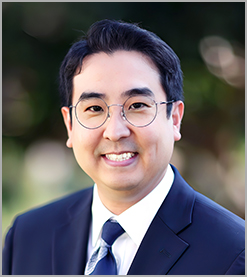강솔로몬 목사
몇일 전 예삶 공동체 셀 모임 개강을 앞두고 이제 매주 토요일 진행되는 리더들의 ‘둘로스’ 모임이 시작되었습니다. 예삶을 맡게 된 담당 목회자로 저를 소개하며 제가 품고 있는 목회 철학과 비전을 나눌 수 있는 시간을 가졌습니다. “저는 말씀에 목숨을 걸었습니다”. 그게 저의 첫 마디 였습니다. “내가 달려갈 길과 주 예수께 받은 사명 곧 하나님의 은혜의 복음을 증언하는 일을 마치려 함에는 나의 생명조차 조금도 귀한 것으로 여기지 아니하노라”(행 20:24). 사도 바울이 에베소 장로들에게 남긴 고별 설교로 그는 사도로서의 자의식이 뚜렷하게 드러납니다. 저는 사도는 아니지만 목사의 주된 본분 또한 하나님의 말씀을 선포하는 것이며 교회의 머리가 되시는 예수께 받은 ‘사명’이라 믿습니다. 목사는 말씀의 종이며 예수 그리스도를 선포하는 것은 설교자의 유기적 정체성이자 삶의 목적이라는 것입니다.
사도행전 6:1을 보게 되면 오순절 이후 초대 교회가 부흥하니 과부들이 음식을 분배받는 것이 소홀히 되어 불평이 생겼습니다. 그래서 성령과 지혜가 충만한 사람 일곱 명을 안수하여 ‘구제 사역’을 맡겨서 감당하게 합니다. 과연 열두 사도는 ‘접대’하는 것을 대수롭지 않게 여겨서 이 일을 ‘안수 집사’에게 떠넘기듯이 하였을까요? 목사가 말씀을 연구하고 해석하여 설교에 힘쓰는 일은 큰 일이고 집사가 식당 봉사하는 것은 작은 일일까요? 사도 바울이 말한 예수께 받은 ‘사명’이라는 단어는 헬라어로 ‘디아코니안(διακονίαν)’ 입니다. 그리고 ‘접대’라는 단어는 ‘디아코네인’(διακονεῖν)으로 사실 ‘섬기는 종(servant)’이라는 뜻을 가진 동일한 헬라어 어원 ‘디아코노스’(διάκονος)에서 파생되었습니다.
사도 바울과 열두 제자가 부름 받은 ‘섬김’의 모습은 말씀을 선포하는 것이고 안수받았던 일곱의 집사의 ‘섬김’의 모습은 과부의 식사를 철저히 책임지는 구제사역 이었다는 것입니다. 이 두 가지 형태에 ‘섬김’의 모습은 그리스도의 몸 된 교회를 위해 ‘부름’ 받은 자리라는 것입니다. 느헤미야와 유다 백성들이 성벽 재건축을 완공한 후 에스라가 율법책을 펴서 낭독하고 그 뜻을 해석하자 백성들이 말씀을 듣고 울며 회개합니다. 그 후 다시 율법을 기준 삼아 자신들의 정체성을 회복하고 부흥을 체험하자 행동이 바뀌고 말씀 공동체의 ‘질서’가 다시 바로 잡힌 것입니다. 제사장들과 레위인들은 하나님을 섬기는 일과 결례의 일을 힘썼고 백성들은 날마다 선별하여 그들의 쓸 몫을 주는 ‘사명’을 충실히 책임진 것입니다. 그러므로 우리 모두가 말씀에 근거하여 예수께서 각각 부르신 사명과 자리에서 겸허이 순종한다면 건강한 교회 모습으로 회복되며 부흥을 경험할 줄 믿습니다.
The Ministry from Jesus and Waiting on Tables
Rev. Solomon Kang
A few days ago, I had the first meeting with the leaders of the Yesalm young adults’ community. This gathering included all cell leaders, ministry team leaders, and pastors, coming together to worship God. As the new pastor overseeing Yesalm, I had the opportunity to introduce myself and share my pastoral philosophy and vision. “My life is committed to the Word,” was my opening statement. “But I do not account my life of any value nor as precious to myself, if only I may finish my course and the ministry that I received from the Lord Jesus, to testify to the gospel of the grace of God” (Acts 20:24). This statement from Paul’s farewell sermon to the elders in Ephesus clearly shows his strong self-awareness of the ‘ministry’ he received as an apostle. While I am not an apostle, I strongly believe that as a pastor, my main duty is to proclaim the Word of God, a ‘ministry’ entrusted to me by Jesus, the head of the church. A pastor is a servant of the Word, and preaching Christ is the preacher’s organic identity and life purpose.
In Acts 6:1, after Pentecost, as the early church grew, there arose complaints because widows were being overlooked in the daily food distribution. Then, they appointed seven men full of the Spirit and wisdom to take on the duty of food distribution. But did the Twelve disciples consider ‘waiting on tables’, insignificant and passed it off to the ‘deacons’? Pastor’s role in studying, interpreting, and preaching the Word is more significant or a greater than deacon’s roles in preparing meals? However, the word for “ministry”(διακονίαν) used by Paul, referring to his ‘ministry’ received from Jesus, and the word ‘waiting’(διακονεῖν) on tables shares the same root meaning, “servant”(διάκονος).
The difference between ‘service’ of the apostles in preaching the Word and the deacons’ ‘service’ in distribution of food for widows is not about higher or lower roles but are essentially the same ‘ministry’ Both are called to serve the body of Christ. After Nehemiah and the people of Judah completed the rebuilding of the wall, Ezra read the Law, and the people wept and repented. They then restored their identity as the people of God adhering to the Law, and experienced revival. This means that the ‘order’ was restored in accordance with the Scriptures. The priests and
Levites were diligent in serving God, and the people faithfully provided for their needs, obeying the ‘order’ instituted by the Law. Therefore, when we all humbly fulfill the ‘ministry’ given to us from Jesus, and submit ourselves to the church order, grounded in the Word, we will see the restoration of church and experience true revival.

